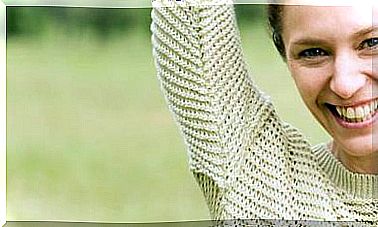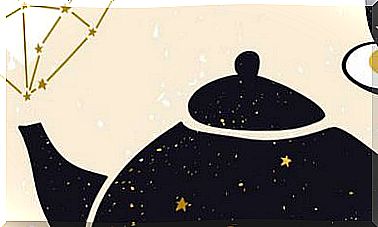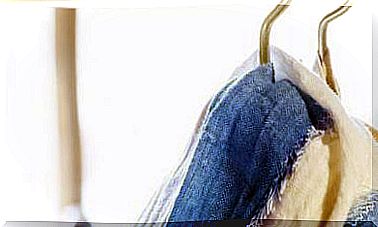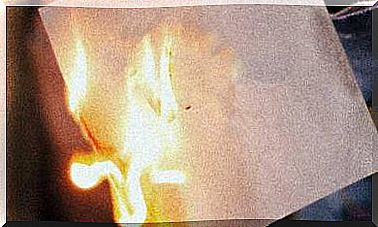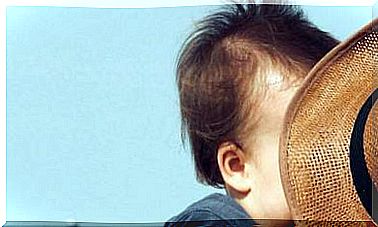How To Avoid Fluid Retention: 7 Natural Remedies
The body sometimes resists eliminating fluids. In these cases, we can help you restore balance naturally.
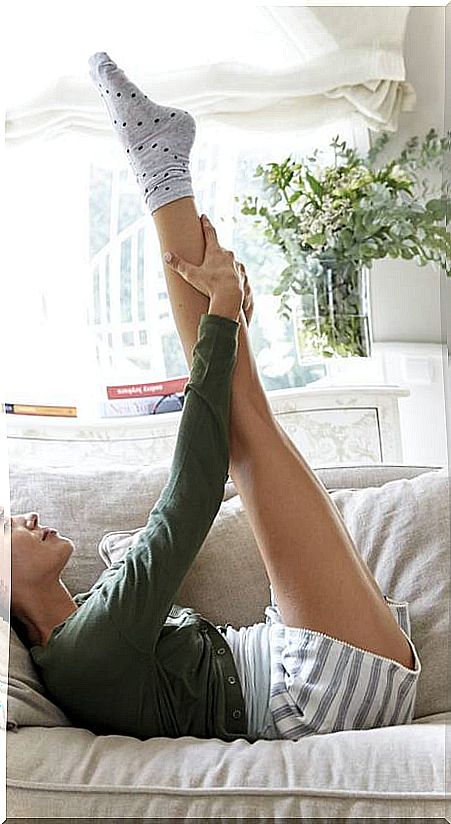
The fluid retention is a very common problem. On certain days of the month or certain times of the year we eliminate little fluid and, consequently, it is retained in the legs, ankles, hands, breasts or abdomen.
The usual cause is the hormonal change that precedes menstruation, but heat and certain venous weakness are also a reason for retention.
Some dietary changes will improve your swollen legs
Sometimes the problem is minor and we simply notice that that ring that was adjusted now does not fit on our finger or that the annoying bags under our eyes have increased.
But if the retention lasts a few days or is accompanied by other discomforts, it should be consulted with the doctor because it can be a symptom of heart, kidney or liver disease .
1. Avoid excess salt
There is a false belief that fluid retention is caused by urinating less, and although this is metabolically true, it is difficult for the person to notice it. In general, urine is of poorer quality and retains minerals (more than water) and that is the root cause of fluid retention.
The excess salts, especially sodium, is attracting inward the liquid and prevents its removal. The first thing we must watch, then, is to eliminate salt from the diet, even momentarily, it is the last responsible for fluid retention.
- Replace it with spices or aromatic plants.
- Remember that processed foods usually contain salt.
- Avoid sweets and refined flours. When insulin production is stimulated, plasma sodium usually increases, causing fluid retention. Eliminate especially sugar and white flours.
2. Take magnesium
You may have a deficiency of this mineral. The supplementation of 200 mg / day Mg can help in the days leading up to the rule.
You can also eat banana, avocado, tomato, cocoa, nuts, chard and spinach : they are rich in magnesium and potassium.
Fluid retention is among the symptoms known as “premenstrual syndrome. ” It has to do with the hormonal changes that occur in the days before the rule and is located in the legs, breasts and abdomen, especially.
3. On weight reduction diets
It is a type of retention that annoys because on certain days you gain weight! It is not about an increase in fat, but the metabolism has these things.
Diets rich in protein (many weight loss diets are) promote the elimination of fluids, and if protein is reduced, some edema can occur in predisposed people. However, too much protein is not convenient either.
4. Plants that stimulate the elimination of liquids
- Nettle ( Urtica ): It is considered a good cleanser because it stimulates elimination through the kidneys and through the skin. There are those who consume it as a vegetable, for example in salad or soup.
- Dandelion ( Taraxacum officinale ): It can be taken in infusion (bitter) and also in salad if the young leaves of the plant are collected, which is very common on the edges of the roads.
- Cherry tails: It is a grandmother’s remedy but enormously effective. They can be combined in infusion with horsetail, grass, birch leaves and star anise in equal parts.
- Horsetail ( Equisetum arvense ): It is diuretic due to its richness in potassium salts. It is one of the most effective for urinating and removing minerals. In decoction, 10-20 g per liter of water. Boil 30 minutes over low heat. You should drink 3 cups a day.
5. Lymphatic drainage
Fluid retention begins to be relatively important when it already causes swelling in the legs. It is easy to see: if the socks leave a lot of mark when you take them off or if when you press the tibia area (the bone) with your thumb, just above the ankle, the toe sinks and leaves a mark, it is because you have edema in your legs.
Any massage helps, but especially lymphatic drainage.
Put on compression stockings : they compress the soft tissue to direct the fluid into the great vessels. They are useful in heat edema (venous insufficiency), but not so much in premenstrual or pregnancy.
6. Elevate your feet somewhat
When you are sitting, put your feet on a pouf. In bed you can raise the lower legs about 2 cm.
7. In pregnancy
The fetus takes up space and compresses the outlet of the leg veins. You do not have to self-medicate, not even with medicinal plants. It is a normal problem that does not imply any disease.
If the retention is exaggerated, consult your doctor since during pregnancy any medication must be doubly supervised. Don’t take diuretics!

